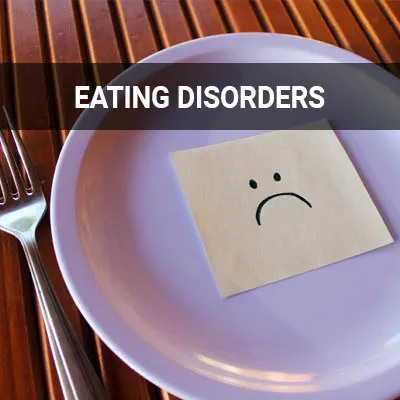Obesity Fort Lauderdale, FL
Obesity is excessive weight gain that threatens the health of the body and is a nationwide problem. It is more than just a cosmetic concern. Obesity is a complex medical issue that increases the likelihood of many other health issues and diseases.
Obesity treatment is available at Proactive Medical Group in Fort Lauderdale and the surrounding area. Many people find it difficult to lose weight on their own. A qualified physician can help identify and treat any medical issues that may be interfering with weight loss.
Call us at (954) 938-2843 to learn more or to schedule an appointment.
Understanding Obesity
The World Health Organization defines obesity as "?abnormal or excessive fat accumulation that presents a risk to health." A body mass index (BMI) over 30 is considered obese. A BMI of 25-29 is considered overweight.
Body mass index is a value obtained by dividing a person's weight in kilograms by the square of height in meters. BMI is not a completely accurate method of diagnosing obesity, as it does not consider body fat, but it is a helpful indicator of whether someone's weight could be a risk to their health. Doctors may perform additional tests or exams to diagnose obesity, including measuring body fat and waist circumference. Individuals with more abdominal fat, or visceral fat, have a higher risk of health conditions such as heart disease and type 2 diabetes.
“BMI is not a completely accurate method of diagnosing obesity, as it does not consider body fat, but it is a helpful indicator of whether someone’s weight could be a risk to their health.”
Symptoms and causes of obesity
Obesity increases the risk of many health problems, including heart disease, high blood pressure, diabetes, and certain types of cancer. It can also cause symptoms such as fatigue, depression, and difficulty sleeping. Back pain, joint pain, shortness of breath, excessive sweating, and skin problems or infections in the folds of skin can also be the result of obesity.
Numerous factors can lead to unwanted weight gain. Of course, diet, exercise, and lifestyle factors all play a role. A diet high in foods such as sugar, soda, baked goods, candy, white bread, and pasta is likely to lead to weight gain. Simple carbohydrates -- such as sugar and refined flour -- are more likely to be converted into fat than complex carbohydrates like vegetables and whole grains.
Many medical conditions can also lead to weight gain or make it difficult to lose weight. Chronic inflammation can lead to weight gain. Hormone imbalances are a common issue that influences how the body stores fat and burns fuel. For example, the hormone cortisol -- which is released during stress -- triggers the body store fat in the abdominal area. Individuals experiencing chronic stress may be more likely to have excess abdominal fat. Polycystic ovary syndrome is a condition marked by hormonal imbalance and often causes weight gain. Any disease that affects the thyroid, which produces several hormones, can also affect body weight.
“Numerous factors influence weight and can lead to unwanted weight gain.”
Treatment Options
A qualified physician can offer multiple treatment options for individuals who are struggling to lose weight. Healthy lifestyle factors, such as eating a healthy diet and exercising, play a large role in weight loss. However, it is also crucial to address any underlying medical factors that are interfering with weight loss.
Hormonal imbalances, stress levels, quality of sleep, and inflammation must all be evaluated and addressed. A physician can order labs to check hormone levels and treat any imbalances with medication if necessary. They can also measure levels of C-reactive protein, a substance produced by the liver in response to inflammation.
“It is crucial to address any underlying medical factors that are interfering with weight loss.”
Check out what others are saying about our primary care physician services on Yelp: Obesity in Fort Lauderdale, FL
Benefits of Professional Obesity Treatment
There is no shortage of over-the-counter or direct-to-consumer diet foods and programs. However, these programs typically focus solely on calorie restriction. Unfortunately, this approach is ineffective for many people.
Conventional weight-loss wisdom says that losing weight requires burning more calories than are consumed. However, this is an oversimplification of the way the body uses the calories it receives from food. Many different factors influence whether calories are burned for energy, or stored for later use, in the form of fat.
A medical professional can order labs to evaluate hormone imbalances or other underlying factors that could lead to unwanted weight retention and create a customized diet and treatment plan that addresses all of the patient's needs. Without addressing these underlying factors, focusing on calorie restriction alone will seldom lead to significant weight loss.
“Many different factors influence whether calories are burned for energy, or stored for later use, in the form of fat.”
Questions Answered on This Page
Q. What BMI is considered obese?
Q. What diseases make someone gain weight?
Q. What is the best treatment for obesity?
Q. How can doctors help with obesity?
Q. How do you implement lifestyle changes?
People Also Ask
Q. What types of weight loss treatments are available?
Continuing Healthy Lifestyle Changes
Any lifestyle changes made as part of an obesity treatment program should be viewed as a new way of living or eating as opposed to a temporary weight-loss solution. If someone were to return to former dietary or lifestyle habits after successfully losing weight, the weight is likely to return. Eating a healthy, anti-inflammatory diet and regular exercise are some of the best ways to prevent weight gain.
Try these tips for maintaining healthy lifestyle changes:
- Do not get discouraged by setbacks. Weight loss is not a linear process, and weight will likely fluctuate over time.
- Identify the reasons for losing weight. Many people are motivated to get healthier to live longer and spend more time with their families or have more energy for the activities they enjoy.
- Start with small lifestyle changes. Gradually add to them over time, rather than trying to overhaul a lifestyle all at once.
- Take regular photos. It can be hard to see progress. Photos provide a visual indication of how body composition is changing.
“Any lifestyle changes made as part of an obesity treatment program should be viewed as a new way of living or eating as opposed to a temporary weight-loss solution.”
Frequently Asked Questions
Q. How do hormones contribute to obesity?
A. Many different hormones can contribute to weight gain. Different hormones in the body are involved in appetite, body fat distribution, metabolism, and storage of excess energy as fat. Leptin is a hormone that helps regulate appetite by telling the brain when to stop eating; however, some people are less sensitive to the effects of leptin. Some people also have higher levels of hormones that trigger the accumulation of body fat.
Q. What foods cause inflammation?
A. Foods that cause inflammation include sugar and sweeteners such as high-fructose corn syrup, trans fats, vegetable oils, refined carbohydrates, processed meat, fried foods, and excessive alcohol. To reduce inflammation in the body, limit intake of these foods and focus on anti-inflammatory foods. Some of the best anti-inflammatory foods are berries, leafy greens, green tea, tomatoes, olive oil, nuts, and fatty fish such as salmon. Consider taking anti-inflammatory supplements such as omega-3 fatty acids in the form of fish oil.
Q. Can lack of sleep lead to weight gain?
A. Lack of sleep can lead to weight gain in several ways. Sleep deprivation may throw off the body's regulation of the hormones leptin and ghrelin, which help regulate appetite. Poor sleep may also make the body more resistant to the effects of insulin, a hormone that moves glucose into the body's cells to be used for energy. Insulin resistance is a precursor to diabetes. Individuals who have trouble falling asleep or staying asleep should take steps to improve their sleep hygiene.
Q. What are examples of healthy lifestyle changes?
A. Many simple lifestyle habits can profoundly affect health and body weight. Drink more water. Many people do not get enough water, and dehydration can have many negative health consequences. Avoid soda or other sweetened beverages, and start switching these drinks out for water. Individuals who have a desk job or otherwise spend a lot of time sitting should find ways to move more throughout the day. Take the stairs instead of the elevator, and take a walk after dinner instead of watching TV—trade out candy and baked goods for snacks such as fruit and nuts. Don't smoke, and drink alcohol only in moderation.
Q. What are the four pillars of obesity treatment?
A. Many medical weight-loss programs offer an approach based on four pillars. Nutrition focuses on eating a healthy diet and eliminating inflammatory foods. Physical activity provides many health benefits and is important for maintaining a healthy weight. Behavior modification focuses on building healthy habits, such as improving sleep quality, practicing mindful eating, and reading food labels. Finally, medication may be used to help correct hormonal imbalances or other issues affecting body weight.
Start Feeling Better – Visit Us Today
By visiting us as soon as possible, our team can help get you the professional treatment you need. Instead of waiting around and allowing the symptoms to get worse, we can provide you with treatment options.
Definition of Medical Terminology
Contact a physician for obesity treatment
If you have attempted to lose weight on your own with no success—or have lost weight only to gain it all back—you are not alone. Contact a physician for help implementing healthy lifestyle changes and addressing any medical issues that may be preventing you from reaching your ideal weight.
Call us at 954-938-2843 to learn more or to schedule an appointment.
Helpful Related Links
- American Journal of Medicine. American Journal of Medicine. 2023
- American Medical Association (AMA). American Medical Association (AMA). 2023
- American Psychological Association (APA). American Psychological Association (APA). 2023
- CDC Overweight & Obesity. CDC Overweight & Obesity. 2023
- National Eating Disorder Association. National Eating Disorder Association. 2023
- World Health Organization Obesity. World Health Organization Obesity. 2023
About our business and website security
- Proactive Medical Group was established in 2022.
- We accept the following payment methods: American Express, Cash, Check, Discover, MasterCard, and Visa
- We serve patients from the following counties: Broward County
- We serve patients from the following cities: Fort Lauderdale, Oakland Park, Wilton Manors, Pompano Beach, and Sea Ranch Lakes
- Norton Safe Web. View Details
- Trend Micro Site Safety Center. View Details
Back to top of Obesity










